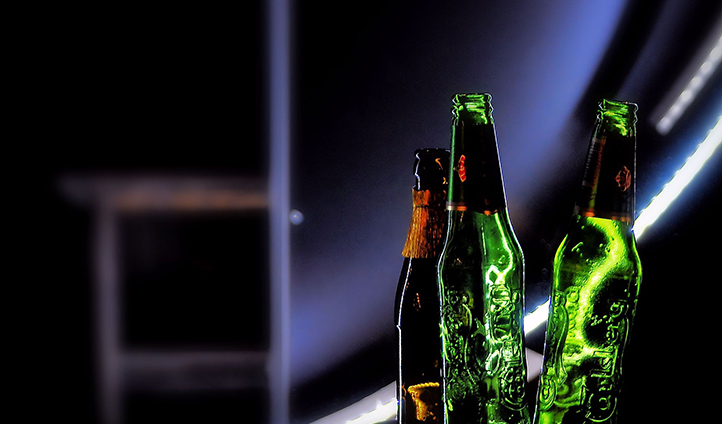Qualified Immunity to Police Officers in District of Columbia v Wesby

The U.S. Supreme Court unanimously held in District of Columbia v Wesby, 583 U. S. ____ (2018), that police officers had probable cause to arrest several partygoers at a raucous, late-night Washington, D.C. party. The Court further held that the officers are entitled to qualified immunity.
Facts of District of Columbia v Wesby
District of Columbia police officers responded to a complaint about loud music and illegal activities in a vacant house. Inside, they found the house nearly barren and in disarray. The officers smelled marijuana and observed beer bottles and cups of liquor on the floor, which was dirty. They found a make-shift strip club in the living room, and a naked woman and several men in an upstairs bedroom. Many partygoers scattered when they saw the uniformed officers, and some hid.
The officers questioned everyone and got inconsistent stories. Two women identified “Peaches” as the house’s tenant and said that she had given the partygoers permission to have the party. But Peaches was not there. When the officers spoke by phone to Peaches, she was nervous, agitated, and evasive. At first, she claimed that she was renting the house and had given the partygoers permission to have the party, but she eventually admitted that she did not have permission to use the house. The owner confirmed that he had not given anyone permission to be there. The officers then arrested the partygoers for unlawful entry.
Several partygoers sued for false arrest under the Fourth Amendment. The District Court concluded that the officers lacked probable cause to arrest the partygoers for unlawful entry and that two of the officers, petitioners here, were not entitled to qualified immunity. A divided panel of the D. C. Circuit affirmed.
Supreme Court’s Decision in District of Columbia v Wesby
In a unanimous opinion by Justice Clarence Thomas, the Supreme Court reversed. The justices first held that the officers had probable cause to arrest the partygoers, concluding that a reasonable officer could easily have found that there was a “substantial chance” that the partygoers had illegally entered the house. As Justice Thomas explained:
Taken together, the condition of the house and the conduct of the partygoers allowed the officers to make several “common-sense conclusions about human behavior.” Most homeowners do not live in near-barren houses. And most homeowners do not invite people over to use their living room as a strip club, to have sex in their bedroom, to smoke marijuana inside, and to leave their floors filthy. The officers could thus infer that the partygoers knew their party was not authorized. The partygoers’ reaction to the officers gave them further reason to believe that the partygoers knew they lacked permission to be in the house. Many scattered at the sight of the uniformed officers. Two hid themselves, one in a closet and the other in a bathroom.… The partygoers’ answers to the officers’ questions also suggested their guilty state of mind. When the officers asked who had given them permission to be there, the partygoers gave vague and implausible responses. They could not say who had invited them…. Additionally, some of the partygoers claimed the event was a bachelor party, but no one could identify the bachelor. The officers could have disbelieved them, since people normally do not throw a bachelor party without a bachelor.
In reaching its decision, the Court criticized the analysis conducted by the D.C. Circuit. According to the Court, the panel incorrectly “viewed each fact in isolation, rather than as a factor in the totality of the circumstances.”
The Court next held that the officers are entitled to qualified immunity. Justice Thomas wrote: “Even assuming that the officers lacked actual probable cause to arrest the partygoers, they are entitled to qualified immunity because, given ‘the circumstances with which [they] w[ere] confronted,’ they ‘reasonably but mistakenly conclude[d] that probable cause [wa]s present.’” Justice Thomas also highlighted that the panel majority and the partygoers have failed to identify a single precedent finding a Fourth Amendment violation “under similar circumstances.”
Previous Articles
SCOTUS Rules State Can’t Immunize Parties from Federal Civil Liability
by DONALD SCARINCI on January 29, 2026
In John Doe v. Dynamic Physical Therapy, LLC, 607 U.S. ____ (2025) the U.S. Supreme Court held that...
Supreme Court to Address Racial Discrimination in Jury Selection
by DONALD SCARINCI onWhile the U.S. Supreme Court has concluded oral arguments for the year, it continues to add cases t...
Supreme Court Halts Deployment of National Guard to Chicago
by DONALD SCARINCI on
In Trump v. Illinois, 607 U.S. ____ (2025), the U.S. Supreme Court refused to stay a district court...
The Amendments
-
Amendment1
- Establishment ClauseFree Exercise Clause
- Freedom of Speech
- Freedoms of Press
- Freedom of Assembly, and Petitition
-
Amendment2
- The Right to Bear Arms
-
Amendment4
- Unreasonable Searches and Seizures
-
Amendment5
- Due Process
- Eminent Domain
- Rights of Criminal Defendants
Preamble to the Bill of Rights
Congress of the United States begun and held at the City of New-York, on Wednesday the fourth of March, one thousand seven hundred and eighty nine.
THE Conventions of a number of the States, having at the time of their adopting the Constitution, expressed a desire, in order to prevent misconstruction or abuse of its powers, that further declaratory and restrictive clauses should be added: And as extending the ground of public confidence in the Government, will best ensure the beneficent ends of its institution.





